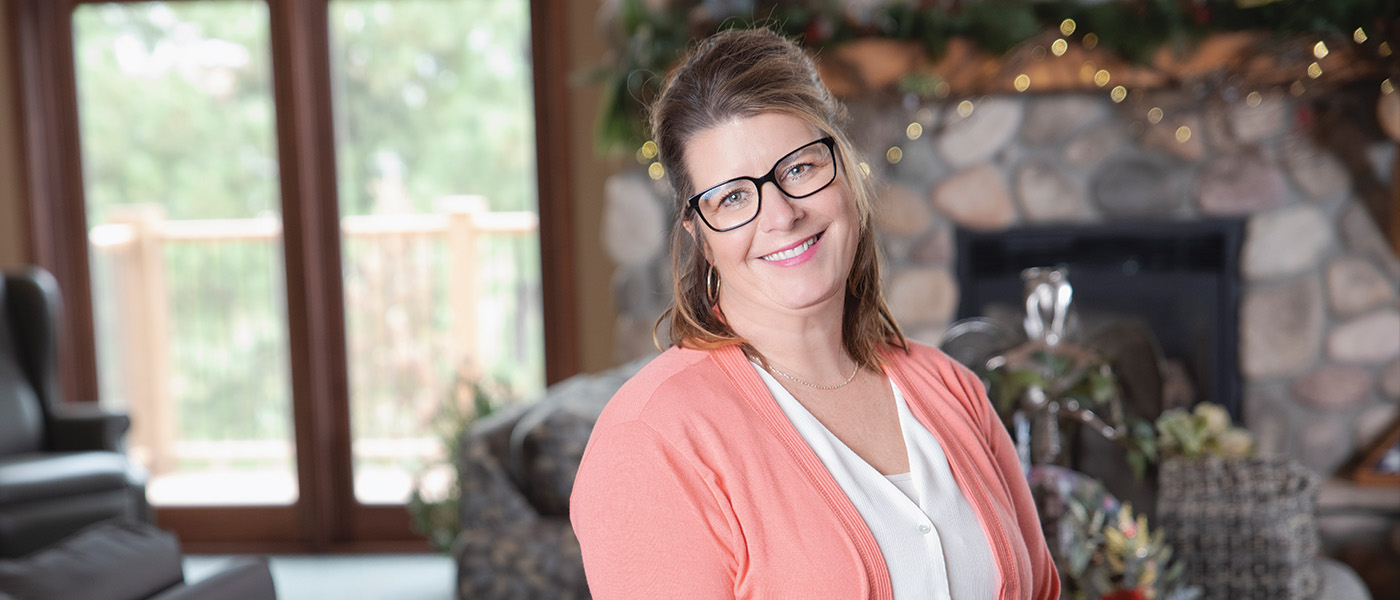As the Hippocratic Oath states, “There is art to medicine as well as science.” This oath sworn by many physicians goes on to state that, “Warmth, sympathy and understanding may outweigh the surgeon’s knife or the chemist’s drug.” No other group of caregivers may understand this balance more than the team behind end-of-life care.
A Special Bond
Caregivers who choose to enter a career in end-of-life care are accepting a special assignment. “We really get to help patients and their families at a really scary time in life,” said Michelle Sieveke, Director of Home Health, Hospice and Palliative Care at Monument Health. Medical strategies in end-of-life care work to treat the whole person through physical, mental and spiritual care.
One of the most important aspects of the hospice philosophy goes beyond the patients themselves. “We’re not only there for the patient; we’re there for the family, as well,” Michelle said. “Families and caregivers get to create a special bond.” Following the passing of a loved one, family members are eligible for up to 12 months of grief support from Monument Health caregivers.
An Extra Drive
Crystal Philpot, the Nurse Manager for Monument Health Home Health and Hospice, shared what it takes to be a caregiver who specializes in end-of-life care. “They have to have an extra drive to connect on a one-on-one basis with patients.” Caregivers who work in hospice, palliative and home care include doctors, nurses, social workers and other specialists who are able to focus on specific aspects of end-of-life care.
“Everyone who starts in this field of health care comes in with an idea of what they think it is,” Crystal said. “They get to see the part they play in a patient passing with dignity and grace. Then they connect the dots of how important and fulfilling what they’re doing is.”
Hospice and Palliative Care
These common terms associated with end-of-life care may seem interchangeable, but each word refers to a unique facet of this field of health care.
Hospice is a philosophy of care that centers around a person who has received a prognosis from their doctor that they have six months or less to live. Hospice care can happen in that person’s home, an assisted living facility or a specialized hospice facility. Curative treatments cease and caregivers focus on comfort and quality of life.
Palliative care is the field of health care that centers on easing the pain and suffering of patients. Palliative care may be included as part of hospice care, but it can also be part of a prognosis that includes curative measures. Caregivers can use palliative medicine and treatments to help their patients, for example, find relief from chronic pain or nausea.
Hospice caregivers are committed to making a lasting difference in the lives of patients diagnosed with a life-limiting illness by enabling them and their loved ones to live each day as fully and as comfortably as possible. Most Hospice patients live in their own home, but Home+ Hospice Care is available for people no matter where they call “home” — a private home, assisted living, nursing home, or the Hospice House. To learn more about the Hospice Care or the Hospice House visit: monument.health/services/hospice.
Memories
“People will always ask me, ‘How can you work in that setting? Isn’t it depressing?’” Crystal said. “To that, I’ll always explain the importance of what we do. When you look back on those really important days in your life, you may not remember the exact details of the moment, but you definitely remember how you felt. And that stays with you forever. My goal is to teach our caregivers that’s what will happen for the loved ones of our patients. You need to provide that experience and that environment so that when the patient’s loved ones look back, it’s a good memory.”
Michelle added, “Our caregivers would say that this is extremely rewarding and fulfilling work.” We are honored to bring a little light to a family’s darkest days and are truly living out a calling to serve our communities.

